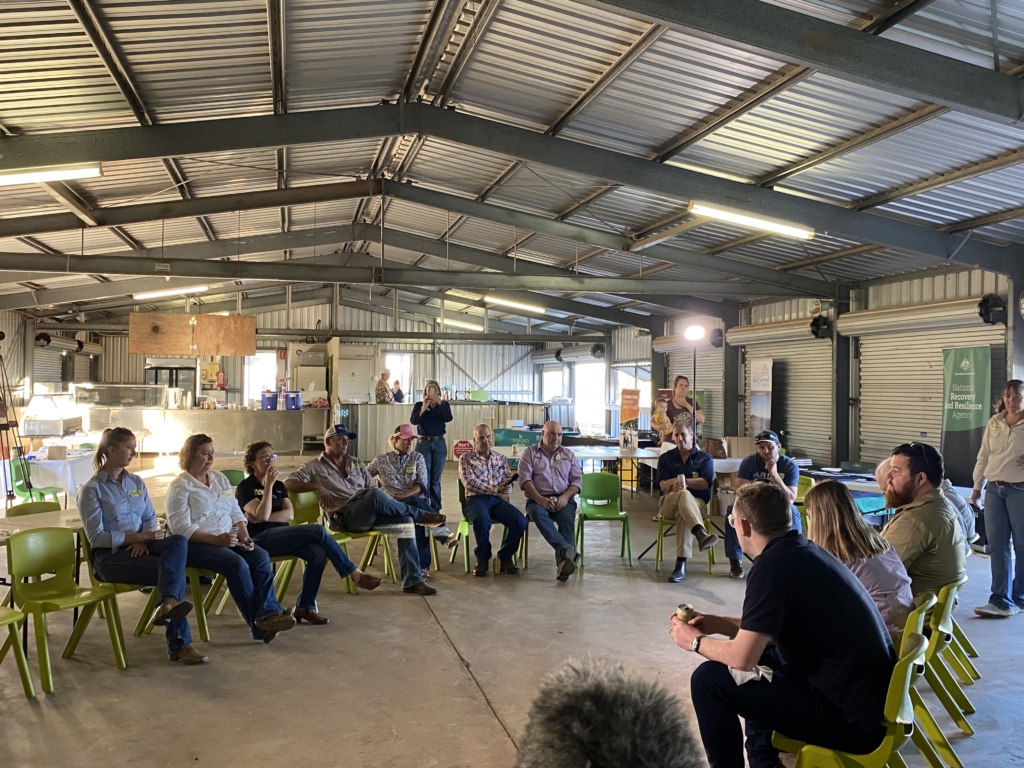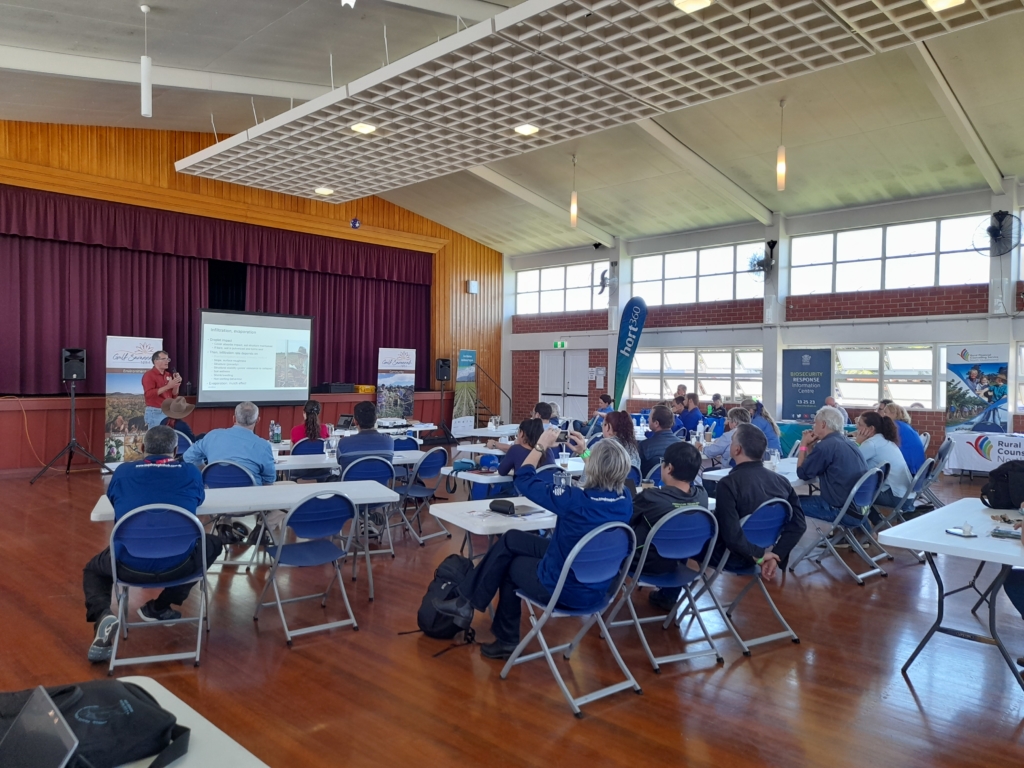Community stories: 24 July 2023
The far northern tip of Queensland – Gulf country – extends from wide plains through to tropical rainforest, but mostly comprises dry tropical savannah country. It s a very isolated region, yet is a productive beef grazing area, with some areas of horticulture. About 10,000 people live in 234,000 square kilometres – an area the equivalent size of Victoria. About 25% of people in the Gulf region identify as Indigenous.
Gulf Savannah Natural Resource Management (GSNRM) connects science, technology and landcare to improve productivity for farmers and graziers. Drought is a common challenge, with frequent extended dry seasons recorded over the last 30 years. GSNRM saw an opportunity to bring together producers for a series of forums across the region to strengthen networks and generally build the community’s capacity to better respond to the impacts of drought. They were supported by a Future Drought Fund Networks to Build Drought Resilience grant of $49,700.
To make the most of the time, organisers planned a farm visit during the Farming Forum, followed by information sessions and a lunch. With most graziers travelling long distances, their session was over two days, providing an opportunity for participants to not only gain new knowledge and skills but also reinforce and strengthen connections between these very isolated residents at social events. The face-to-face events provided a mix of guest speakers to impart knowledge and practical implementation skills or planning sessions to start putting the ideas into action. This included building
understanding of the risks posed by drought by exposing participants to discussions about the future of the region in the face of adverse climatic conditions and then discussing potential solutions. This approach empowered community members to make business resilience changes and fostered partnerships and collaboration between growers, graziers, agronomists, extension officers, industry, drought hub and government.
The organisers also recognised that, by far, the greatest risk posed by drought and the unpredictable nature of climate change is deteriorating mental health. The Unbreakable Success Matrix program, which involved online learning supported by live group discussions and mentoring, gave people the tools to mentally cope with those elements of their lives that cannot be controlled. This structure enabled geographically diverse individuals to come together over several weeks and develop an understanding of how others are coping or not coping, and receive the benefits of listening to the coaching and ideas from the facilitators.
Regular touch points enabled people to get to know each other better and therefore, as the program progressed, saw more vulnerable sharing and thus greater problem solving within the group. Assessment showed the ‘fear factor’ had significantly reduced for all respondents.
These events had the support of the Gulf Cattlemen’s Association and the FNQ Growers Association and were promoted widely through a range of different databases. This ensured a diverse cross-section of the community participated, beyond those that GSNRM normally engages with.
In total, 106 people participated in the three events, ranging from 15 to 74 years, although around 80% were aged 45-64. Around 15% were 15-24. Participants were often intergenerational and reflected a mix of new and established residents and was reflective of the general community.
The opportunity to contemplate drought and climate change in a supportive atmosphere and consider how prepared they are, or not, saw 42% of respondents say that the forums had ‘definitely prompted‘ them to change something in their business, while another 25% said they were ‘somewhat prompted’. Almost 100% of all respondents said that each speaker session was either ‘very valuable‘ or ’valuable’. For the GSNRM group itself, their network has increased dramatically and it has also seen significant increases in the interconnections between virtually all aspects of the
industry, especially across sectors.




